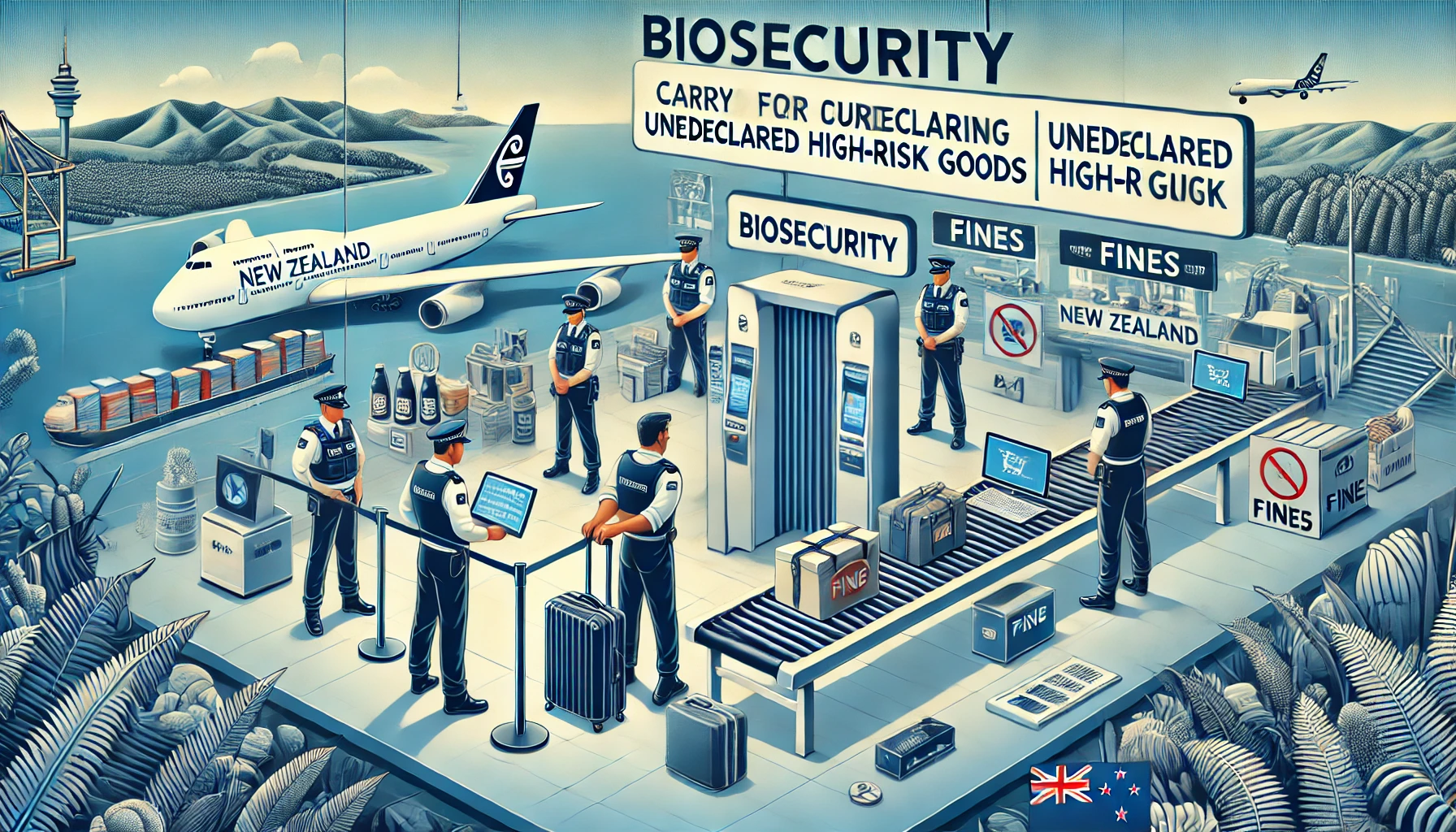New Zealand Strengthens Biosecurity Laws Amid Public Support for Reforms
“The submissions showed that New Zealanders understand the importance of having a strong biosecurity system and are supportive of measures to further enhance it,” Minister Hoggard stated.

- Country:
- New Zealand
The New Zealand Government is moving forward with significant enhancements to its biosecurity framework following widespread public support for proposed amendments to the Biosecurity Act, Biosecurity Minister Andrew Hoggard has announced.
The Ministry for Primary Industries (MPI) recently concluded a public consultation process regarding updates to the Biosecurity Act, reflecting the evolving challenges posed by global trade, increased travel, online shopping, and climate change. The response has been overwhelmingly positive, demonstrating a clear recognition of the need to bolster protections against potential biosecurity threats.
Strong Public Backing for Stricter Biosecurity Measures
“The submissions showed that New Zealanders understand the importance of having a strong biosecurity system and are supportive of measures to further enhance it,” Minister Hoggard stated. “It is vital that our legislation remains fit for purpose to manage growing pressures from various external factors.”
The proposed amendments encompass a range of reforms aimed at strengthening New Zealand’s biosecurity defenses. Key changes include:
- Higher fines for undeclared high-risk goods: Travellers caught bringing in prohibited goods without declaration may face significantly increased penalties. The aim is to deter non-compliance and reinforce the seriousness of biosecurity breaches.
- Greater flexibility for importing requirements: The reforms will introduce more adaptable and efficient processes for import approvals, ensuring that businesses can navigate regulatory requirements more effectively while maintaining high biosecurity standards.
- Fairer cost-sharing for biosecurity responses: A new approach to distributing the financial burden of biosecurity incidents is under consideration, with a focus on equitable cost-sharing between the government, industry stakeholders, and affected parties.
Consultation Period Yields Valuable Insights
The consultation period, which ran from September 19 to December 13, attracted 137 submissions from a broad range of stakeholders, including industry representatives, environmental groups, and individual citizens. According to MPI, the feedback received was not only extensive but also of high quality, helping to shape the next steps in refining the proposed amendments.
“I am very pleased with the level of engagement. The depth and thoughtfulness of the submissions have been instrumental in informing the Government’s approach,” Minister Hoggard noted.
Diverging Opinions on Cost-Sharing and Compensation
While there was widespread support for tightening penalties and improving biosecurity measures, some aspects of the proposals generated mixed reactions. In particular, the idea of increased cost-sharing for biosecurity responses between industry and government sparked concerns among some stakeholders.
“There was particularly strong support for introducing new infringement offences and additional penalties for travellers carrying high-risk goods,” Hoggard said. “However, we also heard that there are reservations about cost-sharing mechanisms and changes to compensation eligibility. It’s clear that further discussions are needed.”
Industry groups, including agricultural exporters and importers, have expressed apprehensions about how additional financial obligations might impact their operations. Meanwhile, representatives from iwi and Treaty partners have called for a more inclusive approach that recognizes the role of indigenous communities in biosecurity management.
Next Steps: Refining Policy Recommendations
Given the mixed responses to certain aspects of the proposals, MPI will undertake further targeted engagement with key stakeholders, including:
- Government Industry Agreement (GIA) partners
- Iwi and Treaty partners
- Regional councils
- Importers and exporters
- Aviation and maritime sector bodies
- Environmental and consumer advocacy groups
This additional consultation will ensure that the final recommendations reflect a balanced and equitable approach to biosecurity governance.
MPI anticipates finalizing policy recommendations later this year, with the goal of introducing legislative changes that are both effective and widely supported. A comprehensive report summarizing the submissions is now available on the MPI website for public review.
As New Zealand continues to navigate an increasingly interconnected world, ensuring a robust and adaptable biosecurity framework remains a top priority for the Government. The proposed amendments represent a proactive step toward safeguarding the country’s biodiversity, agriculture, and economy from the ever-evolving threats posed by global biosecurity risks.
- READ MORE ON:
- New Zealand
- Andrew Hoggard
- Biosecurity Act










